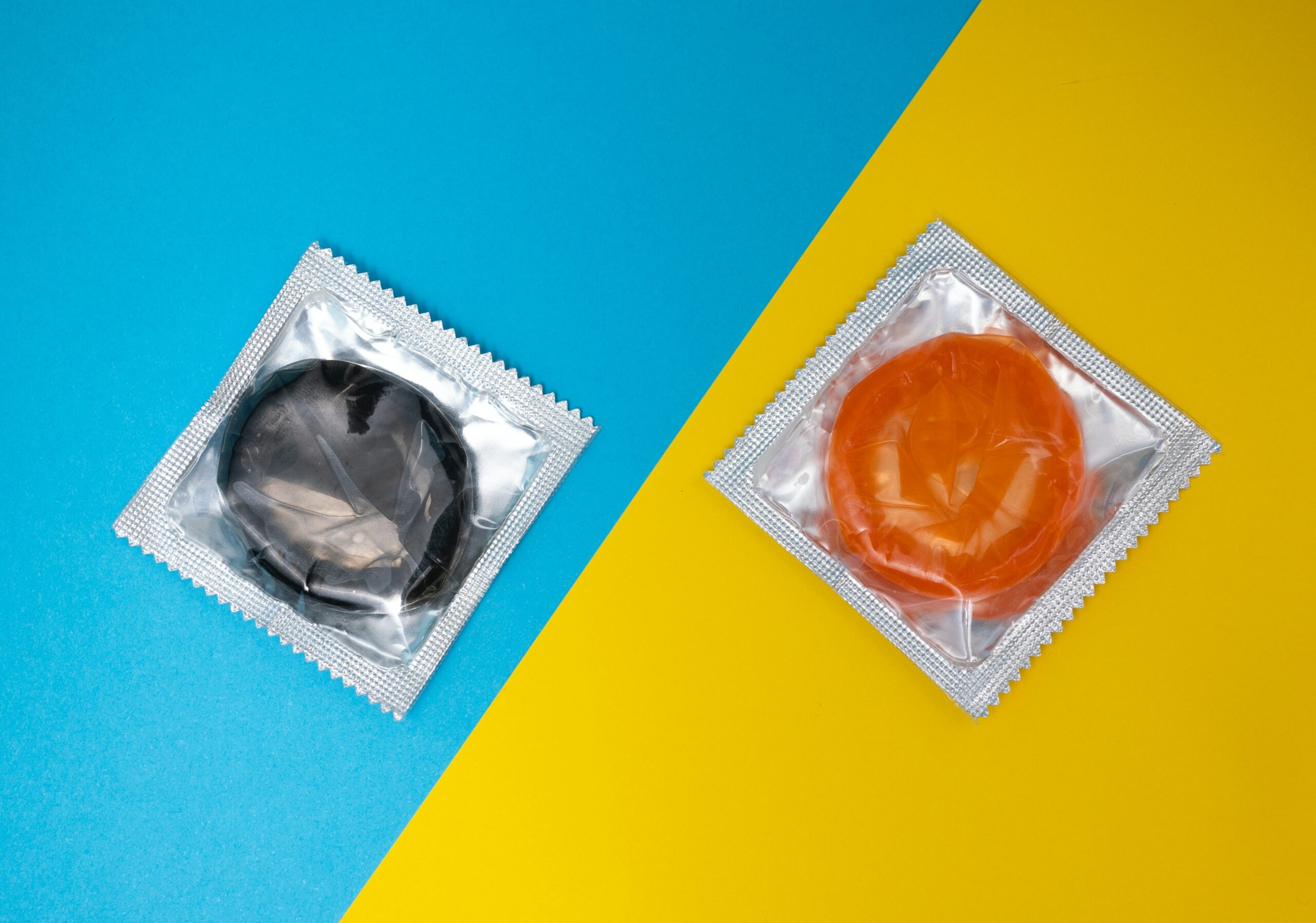
‘Chlamydia is 1 of the most common sexually transmitted infections (STIs) in the UK.’
Chlamydia is a very treatable bacterial infection if caught in time. However, it can carry invisible symptoms and cause long-term health complications if not diagnosed.
The following article informs you on the causes of chlamydia, its symptoms and treatments so you can avoid contracting the STI and keep on top of your sexual health.
What is Chlamydia?
Chlamydia is an infection caused by bacteria that enters the body during unprotected sexual intercourse through genital fluids. It’s an STI (sexually transmitted infection) and is most common in people around 25 and under, who are less likely to use condoms and tend to have more casual sexual partners.
Causes of Chlamydia
The leading cause of contracting chlamydia is typically through the exchange of genital liquids, such as vaginal fluid and semen – although this is not always the case.
It is transmitted via any form of sexual activity, such as vaginal, anal, and oral or if fluids get in the eye. It can also be passed on when there is no exchange of fluids (when a man does not ejaculate) but through the contact of infected genitals. A woman may also pass on chlamydia to their newborn during childbirth.
Chlamydia cannot be contracted through saliva, such as kissing or sharing food and drink, nor via skin contact, for example, hugging or transmitted in swimming pools.
Symptoms of Chlamydia in Men
There are many symptoms of chlamydia, and they can vary from man to woman. In men, it may be localised to the genital area but can spread throughout the body the longer it is left untreated. Here are some of the most common symptoms of chlamydia:
Pain When Urinating

The bacteria of chlamydia (chlamydia trachomatis) contaminates the tube that transports urine through the penis, known as the urethra. This causes a burning or itching sensation when peeing.
Unusual Discharge From the Penis
The most common symptom of any STI, including chlamydia, is unusual discharge secreting from the tip of the penis. It’s essential to understand the difference between this discharge and pre-ejaculation and ejaculation (cum) – which are normal and healthy in men.
Pre-ejaculation is usually clear and watery compared to semen and is a natural lubricant for sexual activity. Ejaculation is white and can vary in thickness. However, infected discharge is usually yellow with a strong, unpleasant odour and will appear even if a man is not sexually aroused.
RELATED: Struggling with erectile dysfunction (ED)? Find out what may be causing it with an Erectile Dysfunction Blood Test.
Testicular Pain
Chlamydia causes inflammation and swelling in all areas of the body, but because it is a sexually transmitted disease, the first place it shows is usually in the testes. They may become extremely uncomfortable, sensitive and painful to the touch or ache even without contact.
Infected Prostate Gland
The prostate gland is a reproductive gland between the bladder and anus and is responsible for releasing hormones for fertility. Its primary role in sexual intercourse is regulating and releasing sperm and fluid, which is why an infected prostate causes an unusual discharge.
However, unpleasant discharge from the gland is not the only sign of chlamydia. It can cause discomfort in the lower back and induce a fever.
RELATED: If you want regular check-ups on your prostate, try this prostate cancer blood test.
Pain During Sexual Intercourse
Inflammation caused by chlamydia can make sex painful or uncomfortable. Having sex also means you are spreading the infection from you to your sexual partner if you have not been treated.
Rectal Pain
The prostate gland is located near the rectum, which means when it is infected, it may induce bleeding, discharge, swelling and discomfort in the anus.
Sore Throat
If you have oral sex with someone infected, you may experience itching, swelling and soreness in the throat. This is because the throat is the first place the infection has come into contact.
Swollen Eyes
If the bacteria chlamydia trachomatis makes contact with your eyes, you could have swelling, itching, redness, crustiness, and constantly watering eyes.

Health Complications of Chlamydia on Men
50% of men don’t experience any symptoms of chlamydia.
That is why it’s critical to get checked out if you have unprotected sex. The ramifications of untreated chlamydia are severe. However, you can avoid them if you receive treatment in time.
-
- Infertility– The swelling of the prostate gland and testes can transmit to inflammation in the tubes that transport men’s sperm, known as epididymis. This can impact a man’s fertility by reducing the quality of semen and sperm count.
RELATED: Trying to start a family? Take a men’s fertility test.
- Increases chances of HIV – Open wounds in the skin from STDs can lead to easier contraction of HIV. People who contract certain types of STIs may also be more susceptible to HIV because they follow previous behavioural patterns of unprotected sexual activity with casual partners.
- Reactive arthritis – Chlamydia can cause reactive arthritis when an STI in the body triggers inflammation in the joints. It occurs in men more than women, and although it is manageable through medication, there is no cure.
Treatment for Chlamydia
Doctors treat chlamydia with a course of antibiotics – an extremely effective medication for sexually transmitted infections. ‘95% of people will be cured if they take their antibiotics correctly.’
Unfortunately, many people do not finish the course of antibiotics, which will not eradicate or effectively treat chlamydia. If the medication is not taken correctly the first time around, it can cause complications. If prescribed antibiotics, you must take them as the doctor directs.
Types of antibiotics include:
- Doxycycline – You can take the antibiotic via tablets (both dissolvable and regular) and capsules. It’s a very short treatment and is taken every day for one week.
- Azithromycin – Similar to doxycycline, azithromycin treats the infection. Usually, a 1g dose is taken, reducing it to 500mg for a few days.
- Amoxicillin – This is penicillin and is more suitable for someone who has allergies to other antibiotics, is pregnant or breastfeeding.
- Erythromycin – Another antibiotic which may be given instead of the most commonly used doxycycline and azithromycin if there is an allergy or a woman is pregnant or breastfeeding.
How to Prevent Chlamydia

-
- Use condoms – Condoms are an easy way to protect the exchange of genital fluids. However, it’s vital to remember to use them during all sexual activity, including oral. You must also ensure you do not transfer any fluids to the eyes.
- Check your sexual partner(s) do not have any STIs – The safest way to prevent contracting chlamydia is to check with partners that they are not carrying anything. This can be difficult as not everyone has symptoms. Therefore, requesting a recent medical certificate to show they are clear is an excellent way to know. This is also good practice for any new sexual partner, even for a long-term relationship.
- Have regular check-ups – Taking blood tests to check for STIs at least once a year is a healthy practice if you are sexually active with new or multiple partners.
RELATED: Take a male hormone test to ensure your body is functioning healthily.
- Talk to your sexual partner – If you and someone else are engaging in casual sex with multiple partners, you must communicate with them about safe sex. Have an open and honest conversation with each other and ensure they tell you and you tell them if you are having sex with other people.
Look After Your Sexual Health
Sexually transmitted diseases like chlamydia are easily avoidable when taking the correct action. Use condoms, communicate with your sexual partner and take regular blood tests to catch infections early. If you notice any symptoms, then book an appointment with the GP immediately so you can get treatment and avoid any lasting health complications.
Yes, I Want to Check My Health.
If You Found This Article Useful, You May Also Like:
- Do You Have a Testosterone Imbalance?
- Men’s Hormone Imbalance: What You Need to Know
- The Best Exercise to Balance Men’s Hormones
Written by Emma Carey. Emma is a health and wellness enthusiast who likes to know the science behind how supplements, vitamins, nutrition and exercise affect the body. She’s on a health and fitness journey to improve her lifestyle and live life to its fullest.
FAQs
How do you know if a man has chlamydia?
Unusual discharge from the penis, difficulty and pain when urinating – typically characterised by an itching or searing feeling – and uncomfortable or sore testes indicate that a man has chlamydia.
How long does chlamydia take to show up in males?
1-3 weeks is the average time for chlamydia to show up in men. However, physical symptoms can start later, so it’s essential to get regular checkups and blood tests if having unprotected sex with anyone you do not know is clean or having sex with multiple partners.
Can chlamydia go away on its own in males?
Sometimes, however, it takes a long time and can be highly uncomfortable. It also risks causing severe health problems and long-term damage if left untreated. The far better option is to receive simple medication from a doctor.

